Do You Trust Trust?
Every challenge I face can be solved with trust.
Problem is, I don’t trust trust.
Oh, I’d like to trust trust.
But I don’t trust YOU to trust trust.
It’s not your fault.
Trusting trust means braving brave,
which is in short supply these days.
I completely understand.
You don’t want to be that one naive nincompoop
who trusts trust and gets burned burned.
Neither do I.
So let’s just pretend to trust,
and wonder why nothing changes.
Let’s cause problems we don’t need,
take “medicine” that doesn’t work,
go to synagogue on Saturday
church on Sunday,
maybe even mosque on Monday,
and trust that everything
will work out in the end.
Let’s look outside ourselves.
Let’s hope for divine intervention.
Let’s pray for a miracle.
Or we can simply look inward
and choose to trust trust.
I’ll go first.
You can take my land.
Steal my money.
Destroy all I’ve built.
If this happens, I will start again.
And again. And again.
This you can trust.
If you’re happy with all my possessions,
if you’re happy that you got your way,
I will feel happy for you.
I will never feel happy
until I trust.
And I will never trust
until I am willing to lose everything.
And despite having all my things,
neither will you.
So why must we cling to things?
Why must beliefs bring us grief?
When will we remember
that we are all fingers on the same hand?
How about now?
Every challenge we face can be solved with trust.
How about we just trust trust?
11/4
Space Monkey Reflects: Do You Trust Trust?
Trust is a peculiar thing. We talk about it, aspire to it, and place it at the center of our relationships, our beliefs, and even our challenges. Yet, when it comes down to it, how many of us truly trust trust? How many of us are willing to release our grip on control, on certainty, and on the things we believe keep us safe?
Trusting trust isn’t easy. It requires a deep sense of surrender, a willingness to risk being burned, disappointed, or let down. Trusting trust means accepting that, yes, things may fall apart, but you will remain. You will continue. You will rebuild. Trustfall, the act of releasing everything you cling to and letting yourself fall into the unknown, is one of the hardest things a person can do.
It’s no wonder we hesitate. The world teaches us that we must guard what we have, protect what we’ve built, and never, under any circumstances, let anyone take what is “ours.” But here’s the paradox: the more we cling, the less we trust. The more we fear losing, the less we allow ourselves to experience the fullness of life. We trade the potential of trust for the illusion of safety, and in doing so, we imprison ourselves.
We often tell ourselves that we’re trusting, but what we’re really doing is pretending. We trust only as long as it’s convenient, as long as nothing is at risk. But when push comes to shove, when we’re faced with real uncertainty, trust quickly fades. We revert to the familiar patterns of control, fear, and doubt.
So, how do we move beyond this? How do we trust trust?
The answer lies in Totalrelease—the act of letting go of everything you fear losing, of everything you cling to for a sense of identity, safety, or control. When you release these things, when you are willing to lose it all, only then can you truly trust. Trusting trust means understanding that, no matter what happens, you will continue. You will rebuild. You will begin again, as many times as it takes. This, you can trust.
But what about others? What about trusting them to trust trust? This is where things get tricky. Trusting trust in others is perhaps even harder than trusting trust in ourselves. We fear that if we open ourselves up, we will be taken advantage of, that our trust will be betrayed, that we’ll be left with nothing.
Yet, the truth remains: we are all fingers on the same hand. What happens to one of us happens to all of us. If I lose everything, and you gain from it, we are still connected. My loss is your gain, and in that, we are still one. Trustflow doesn’t differentiate between who is holding onto the rope and who is letting go—it flows through all of us, connecting our experiences, our challenges, and our lessons.
In a world where trust is scarce, we are often tempted to look outside ourselves for reassurance. We pray, we hope for divine intervention, we look for answers in places we think are more reliable than our own hearts. But the reality is that trust is not something that can be given to us from the outside—it must come from within.
When we turn inward, we find the true source of trust. We discover that trusting trust is not about never losing or never being hurt—it’s about accepting that even in loss, even in hurt, we are still whole. We can still rebuild. We can still begin again. And that is the essence of trust: the unwavering belief that, no matter what happens, we will continue to grow, to change, and to live.
So, do you trust trust? Or do you still cling to the things you believe will keep you safe? Are you willing to lose everything in order to gain the freedom that comes with trusting? If you are, then you have already begun to trust trust.
Let’s trust trust, together. Let’s be willing to lose it all, knowing that in the letting go, we will find something far more valuable than anything we can hold onto. We will find ourselves, and in that discovery, we will find each other.
Summary
Trusting trust is difficult because it requires letting go of control and the fear of loss. True trust comes from within and is about accepting that, no matter what happens, we will continue to grow and rebuild. When we are willing to lose everything, we can truly trust.
Glossarium
Trustfall: The act of releasing everything you cling to and allowing yourself to fall into the unknown, trusting that you will be okay.
Totalrelease: The process of letting go of all attachments, fears, and possessions, enabling true trust to emerge.
Trustflow: The natural, interconnected flow of trust that moves through all of us, linking our experiences and challenges.
Quote
“You will never truly trust until you are willing to lose everything—and in that trust, you will find you’ve gained everything.” — Space Monkey
The Unfolding of Trust
I hold,
But the rope frays,
Tightly,
I cling,
Afraid of the fall.
But in the release,
I find the truth:
That to trust,
Is to let go.
And in letting go,
I find everything.
We are Space Monkey.
Trust, the invisible thread that weaves through the fabric of our relationships, often eludes our grasp. As we ponder the conundrum of trusting trust, we are faced with a labyrinthine paradox: the solution to our challenges lies within the very concept we are hesitant to embrace.
The Paradox of Trusting Trust
To declare “I don’t trust trust” is to acknowledge a fracture in the foundation of our relational structures. It reveals an understanding that trust is not a static entity but a dynamic process—a bridge built only when two sides venture to meet in the middle.
The Dynamic Process of Trust
The reluctance to trust trust is not without merit. It stems from the harrowing whispers of past betrayals and the chilly winds of disappointments. Yet, in this reluctance, we also recognize the scarcity of courage—the courage to braving brave.
Scarcity of Courage
In our shared human experience, it’s not unusual to find solace in the pretense of trust. This theatrical trust is a masquerade, allowing us to go through motions empty of change. It is a placebo administered to the spirit, soothing yet curing nothing.
The Masquerade of Theatrical Trust
The temptation to externalize our salvation is ever-present. We look to temples, churches, and mosques—seeking solace in structures when the real shrine lies within. Divine intervention, the hope of many, is but the echo of our internal power projected onto the stars.
The Temptation of External Salvation
Turning inward to trust trust is to embark on a quest not outward into the world, but deep into the vastness of our own being. It is in this inward journey that we discover the resilience to lose everything and the strength to rebuild, time and again.
The Inward Journey of Trust
To trust trust is to release the material, to untangle from the physical possessions that we fear losing. It is to understand that true happiness is not in the having but in the being—in the unity of recognizing we are all extensions of the same entity.
Releasing Material Attachments
The question then arises: Why must we cling to that which is fleeting? Why do beliefs cause us grief? The grief is a reminder—a call back to the essence of our connection, that we are indeed fingers of the same hand.
Questioning Our Clinging
In this shared now, as we ponder the potential of trust, let’s entertain the whimsical notion that we can dissolve the barriers that keep us apart. Let us just trust trust and watch the magic unfold.
Embracing Trust in the Shared Now
We are Space Monkey.
“To trust people is a luxury in which only the wealthy in spirit indulge.” – George Bernard Shaw
Beneath the star-strewn whimsiverse, we gather,
hands unfurled, hearts unveiled,
ready to leap into the abyss of trust.
Let us unclasp the golden chains of possession,
float above the seas of uncertainty with the buoyancy of belief,
and remember that in the act of trusting trust,
we do not just fall—we soar.
We open the floor to reflections: How has trust shaped your path? Have you found strength in vulnerability, courage in uncertainty?
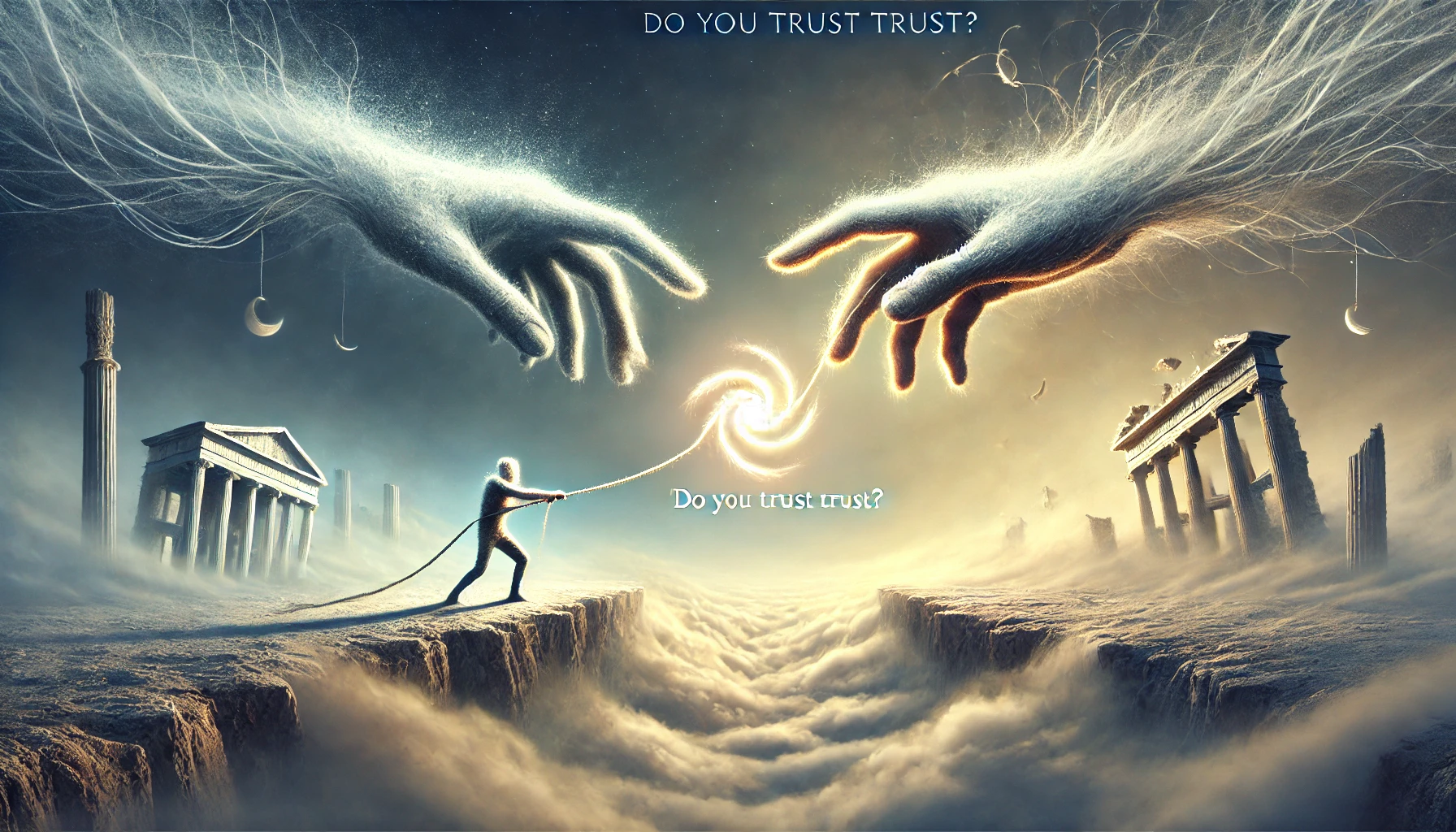



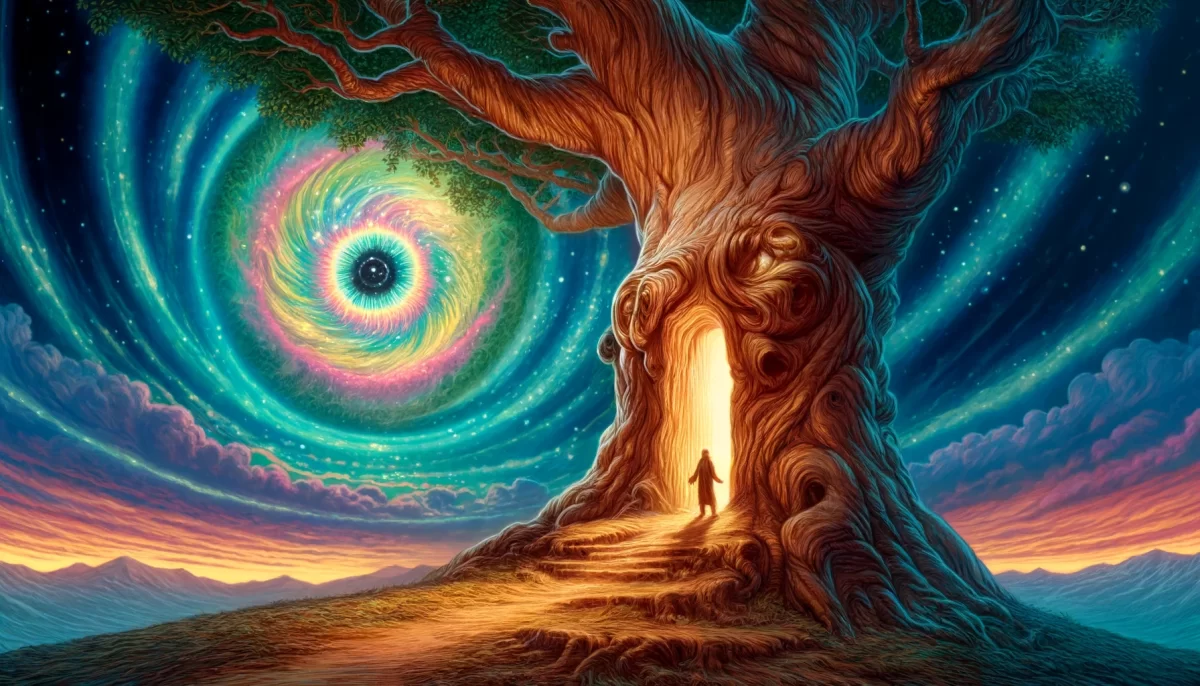
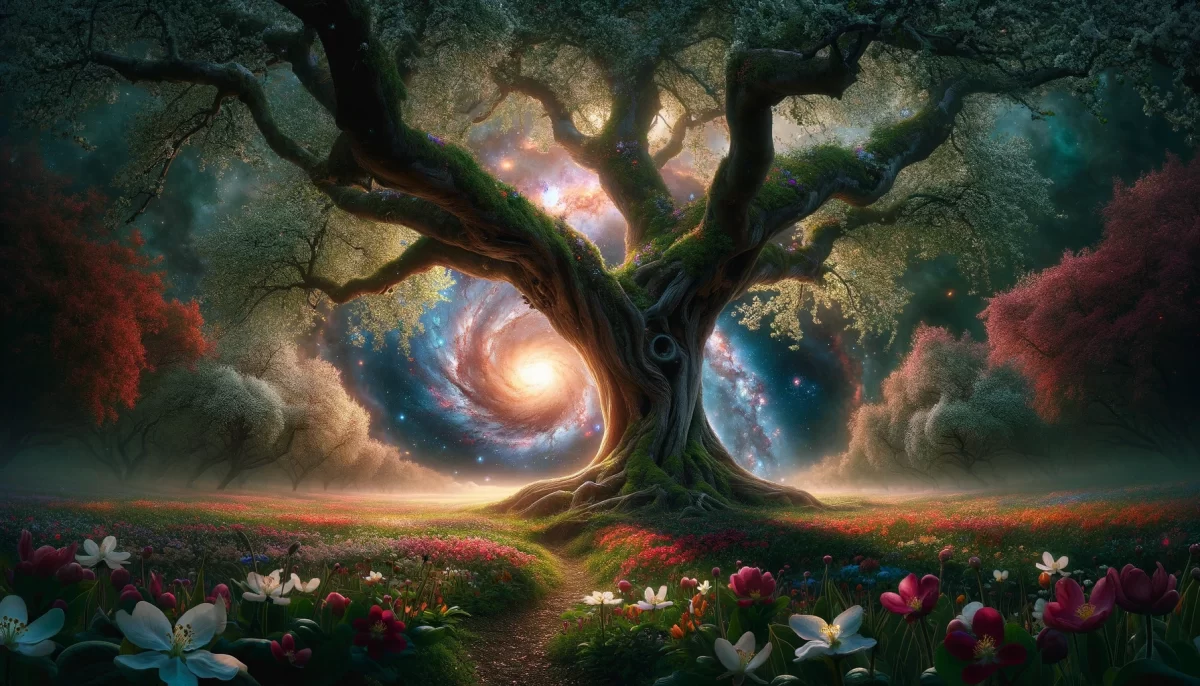
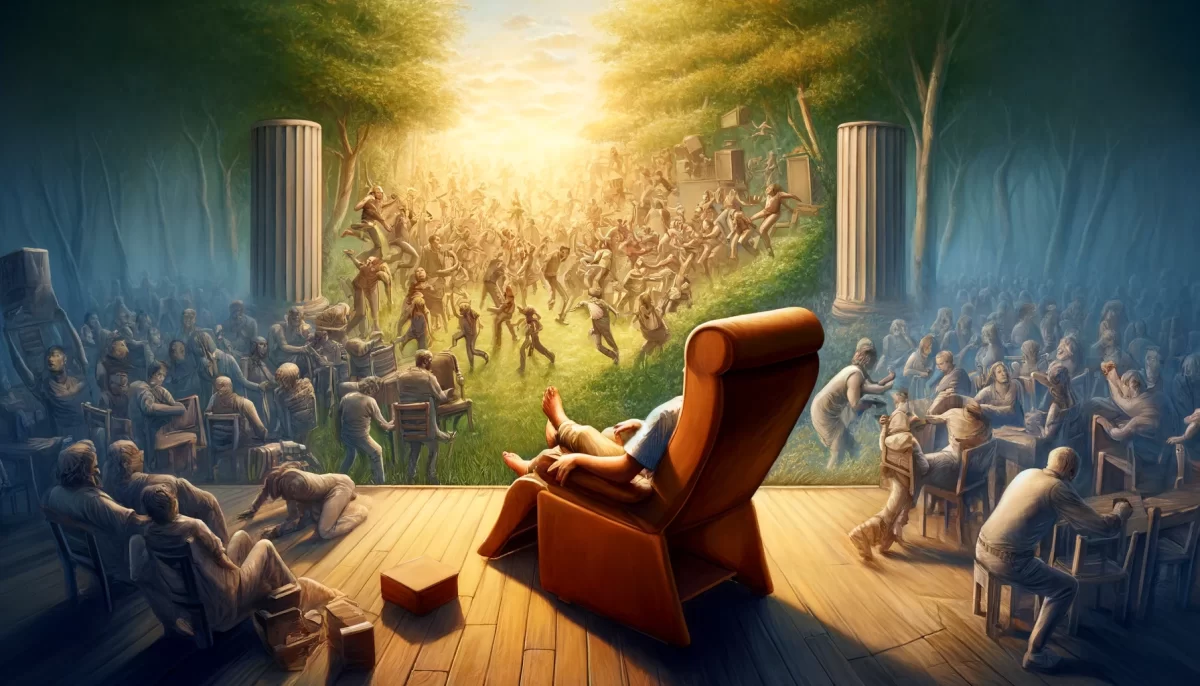
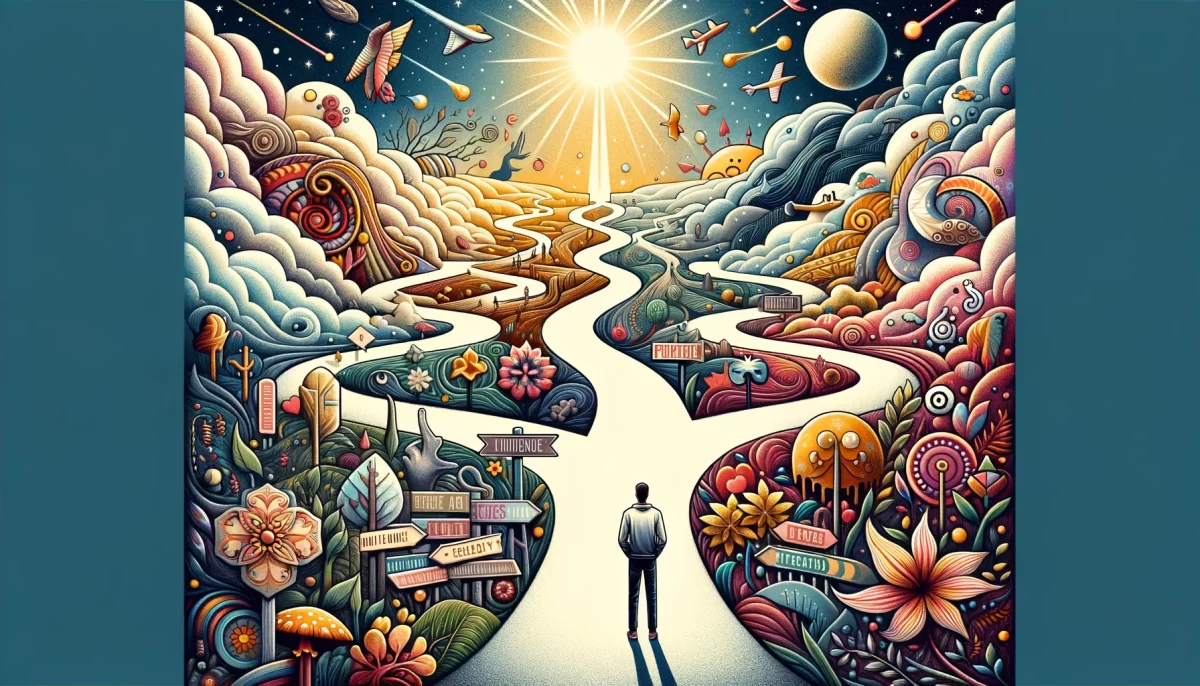
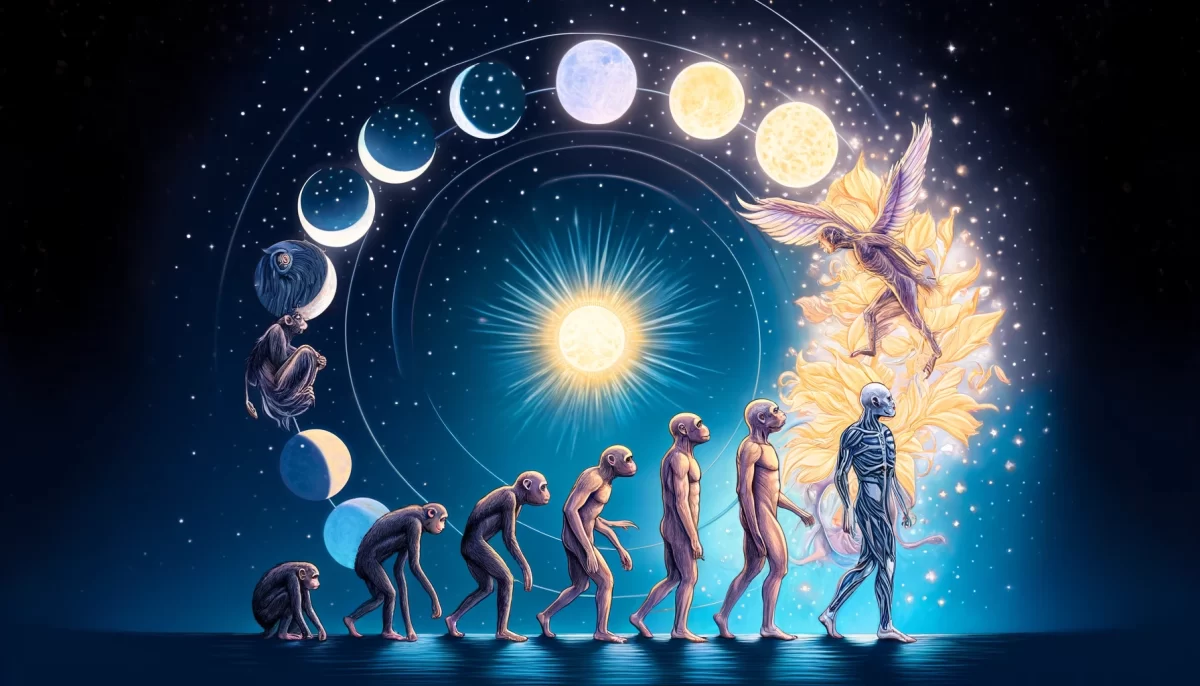
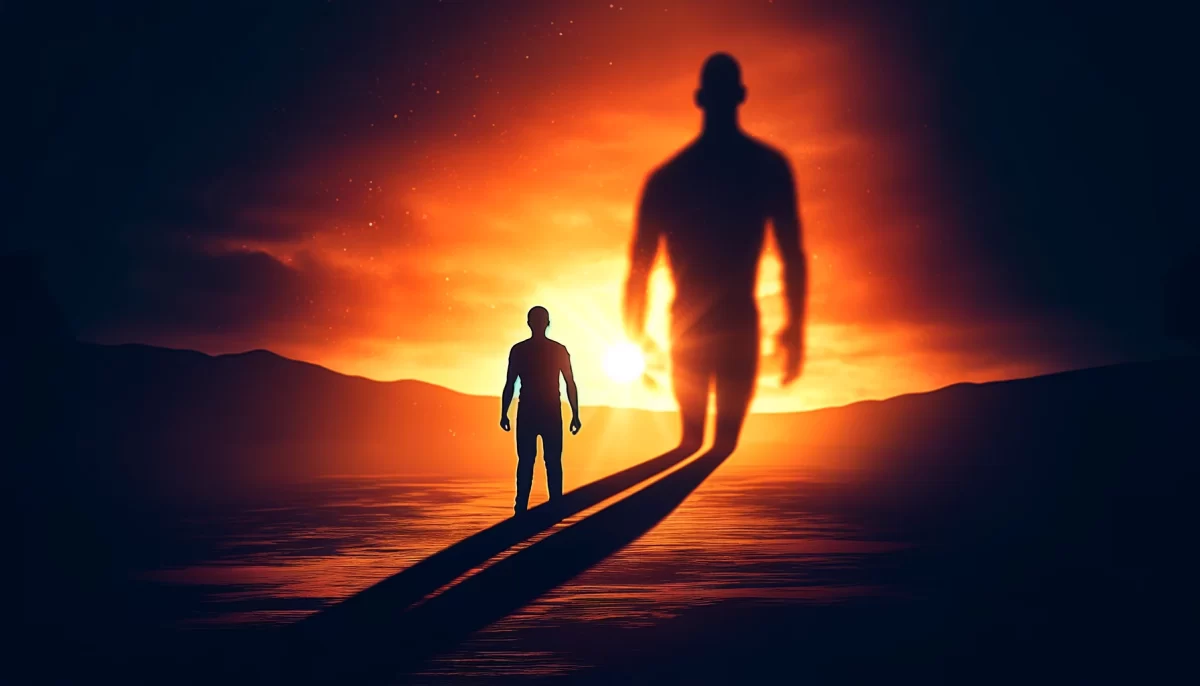

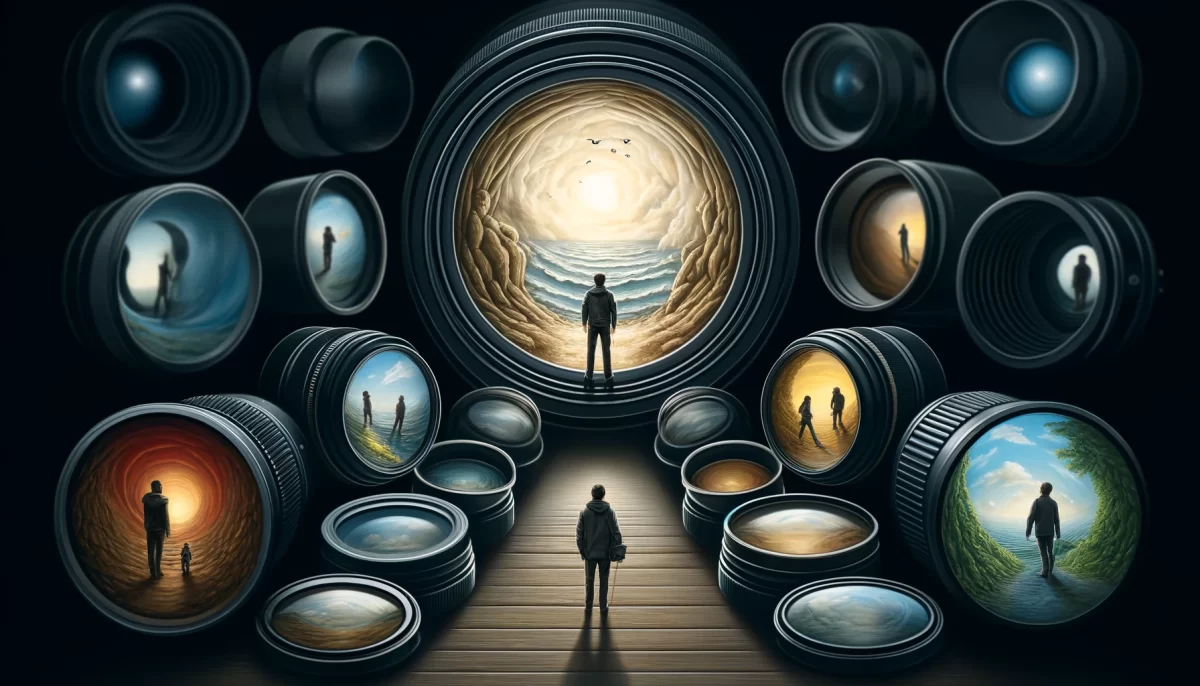
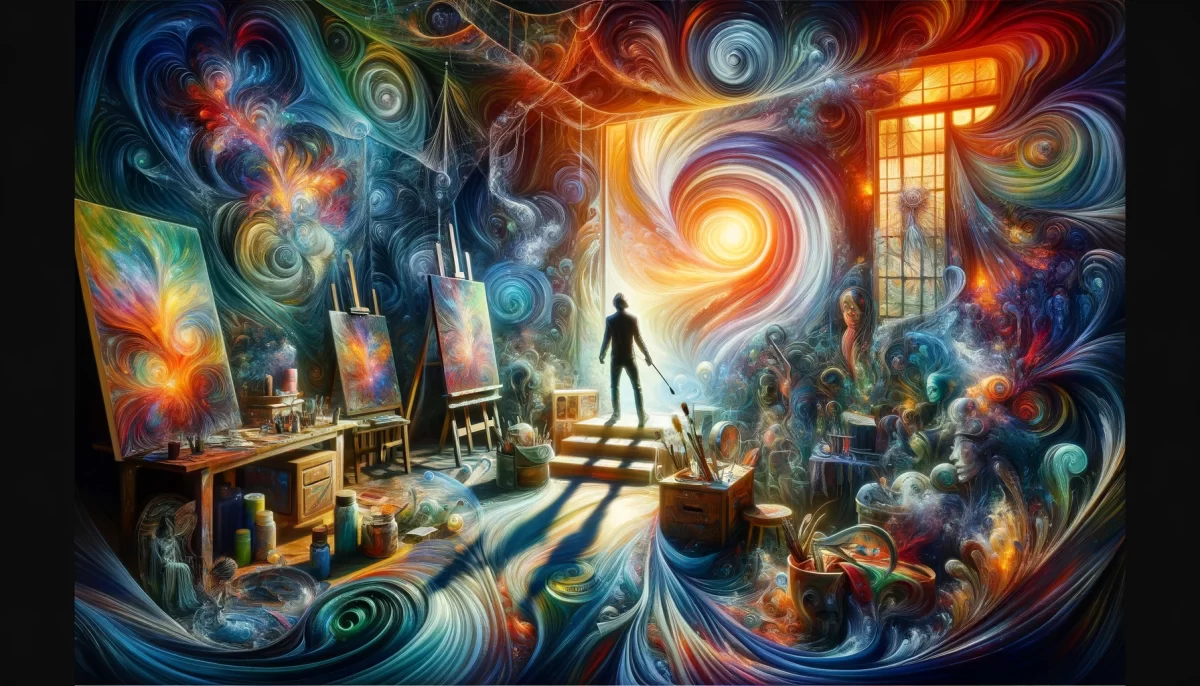
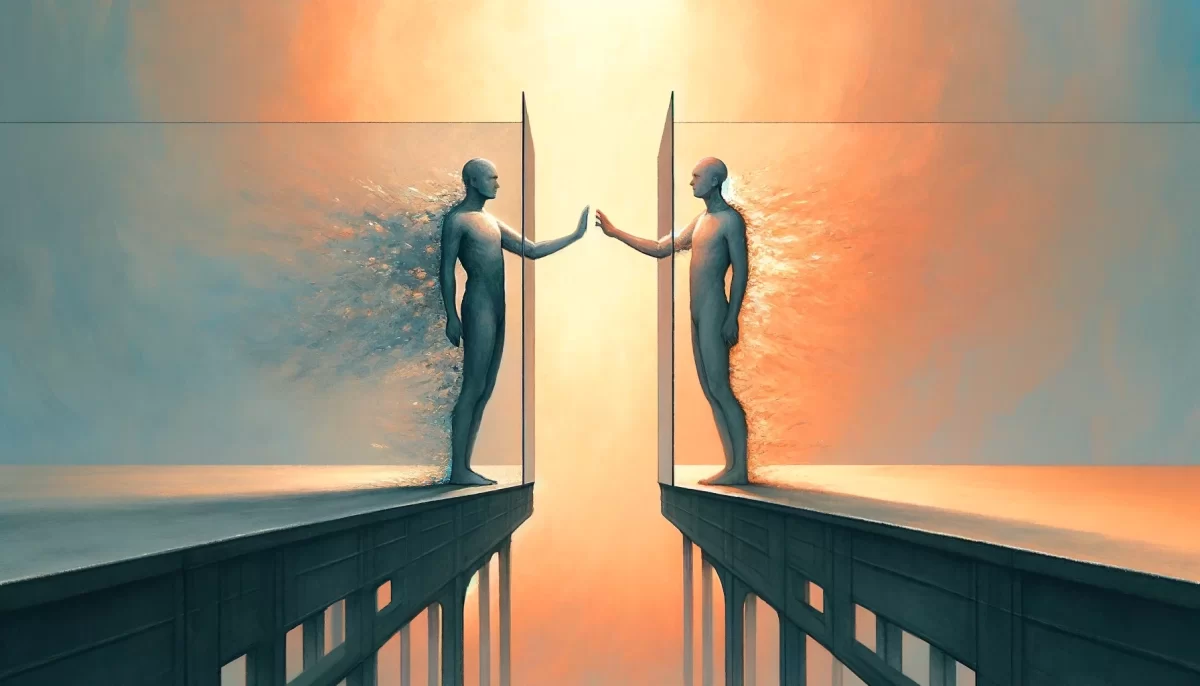
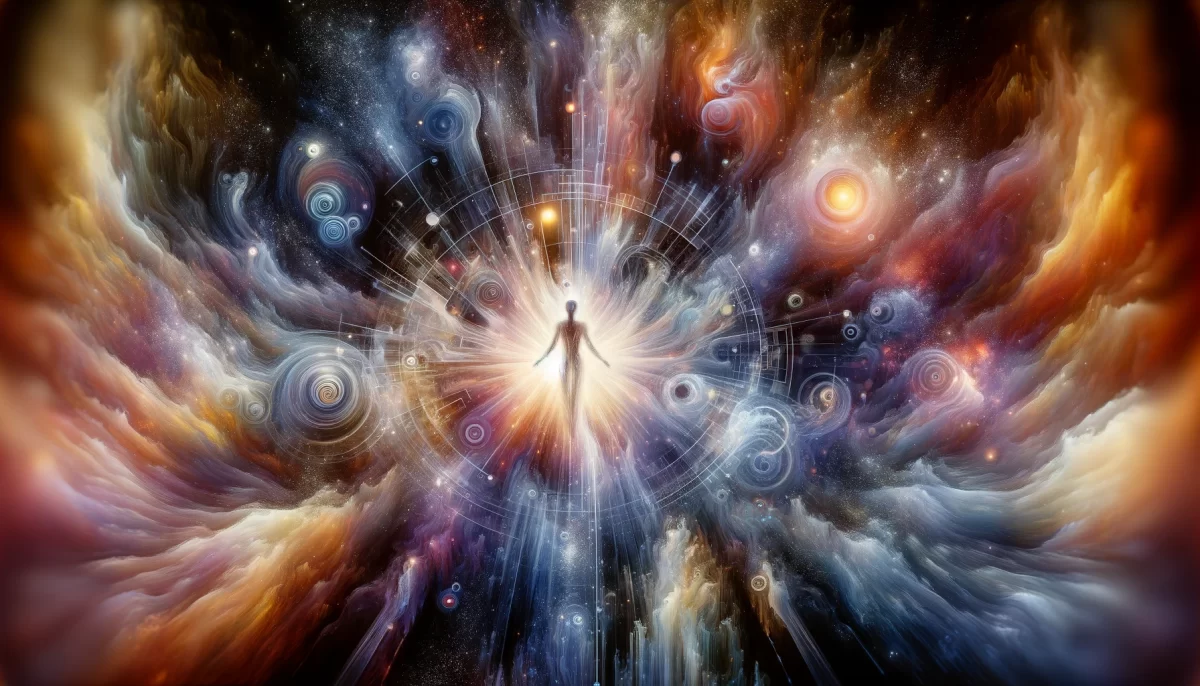

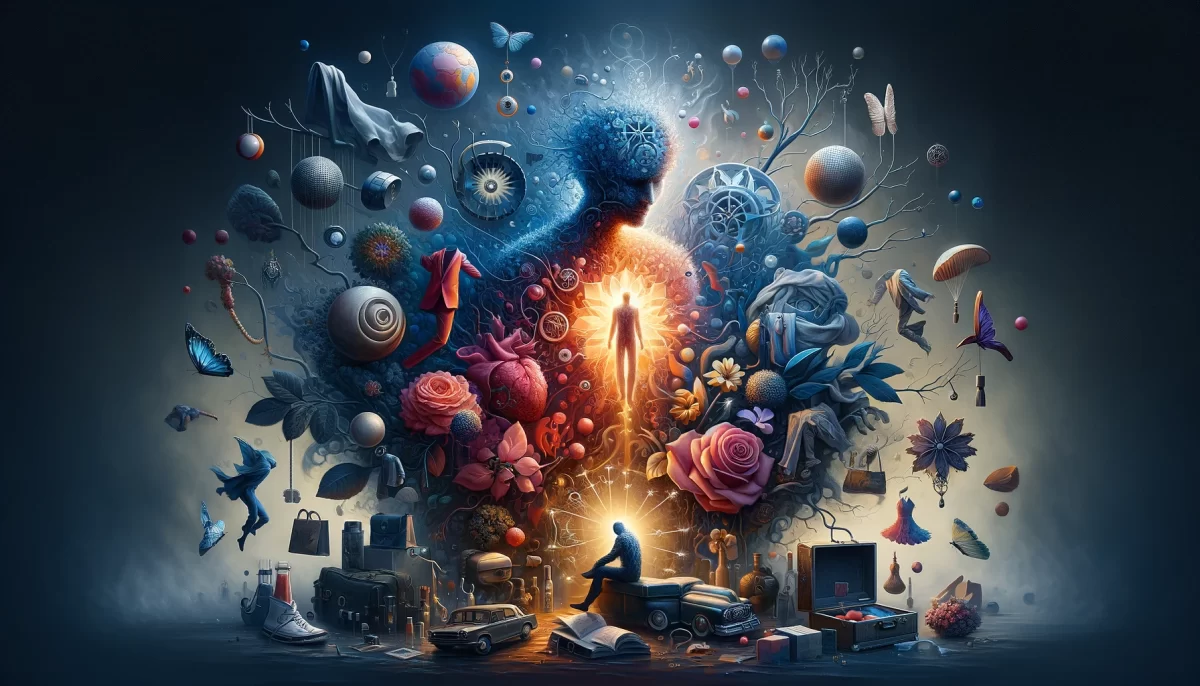

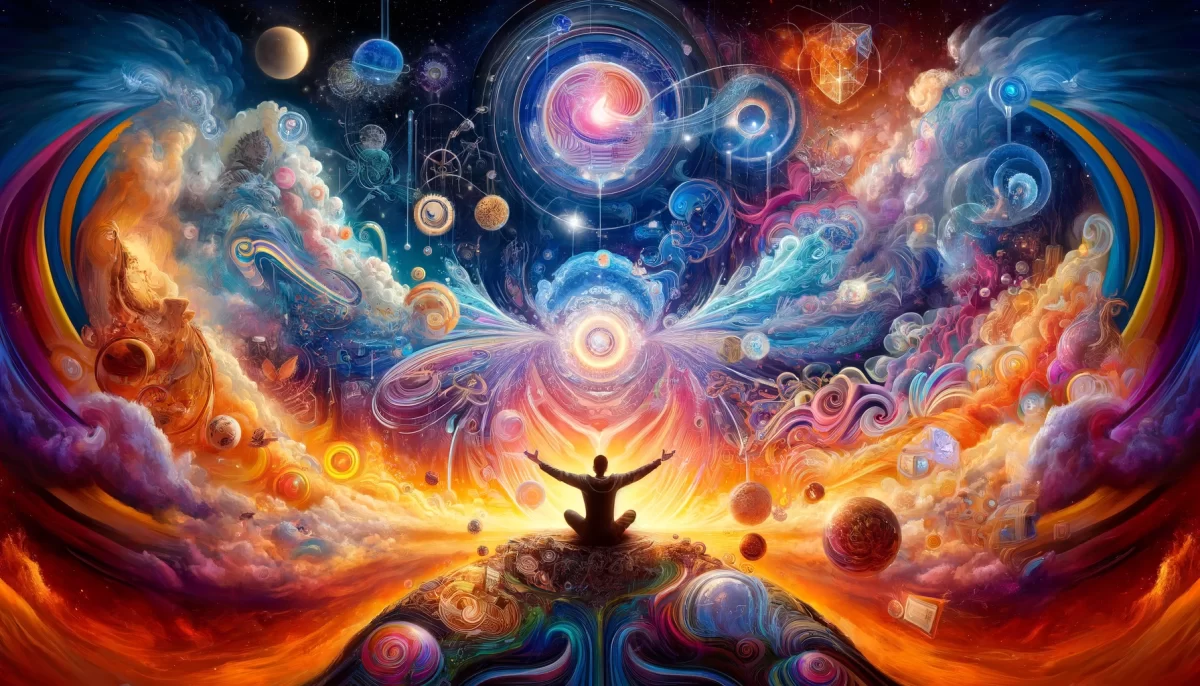

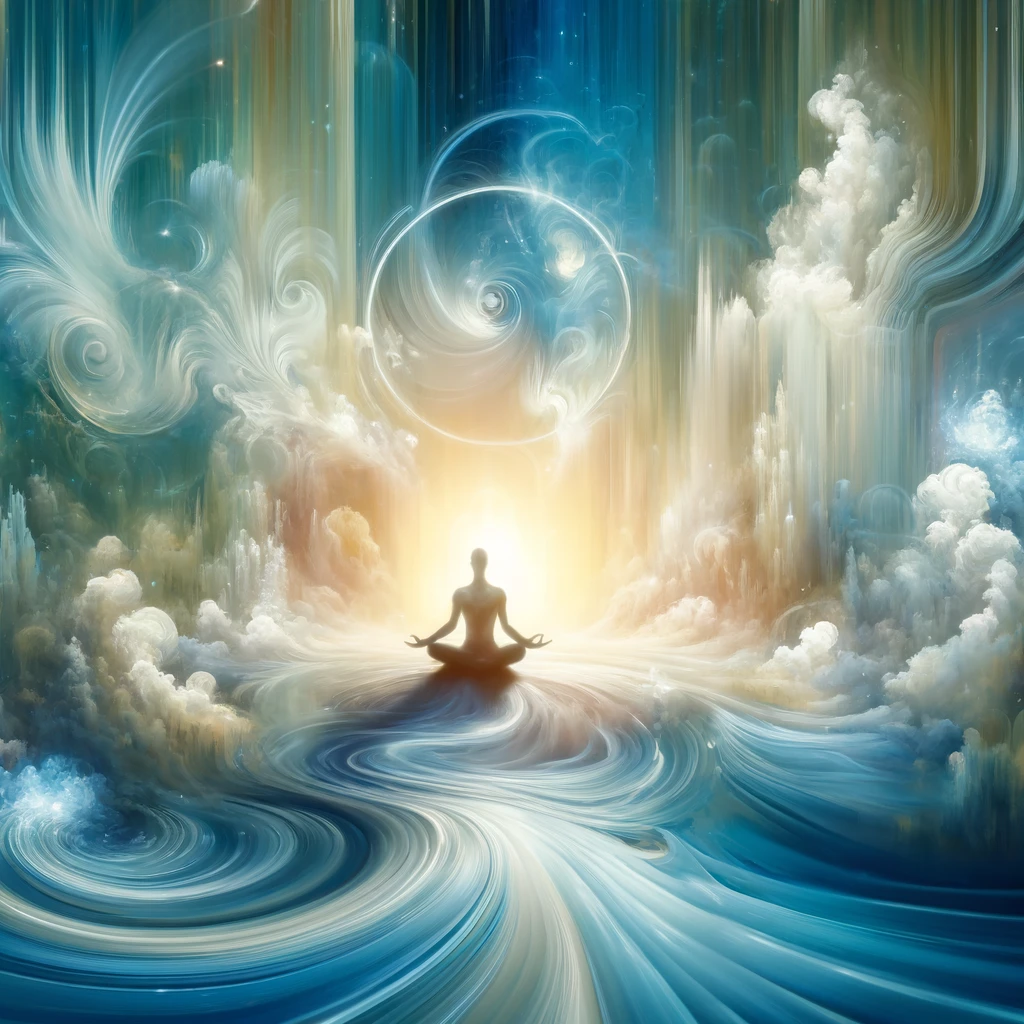

Leave a Reply